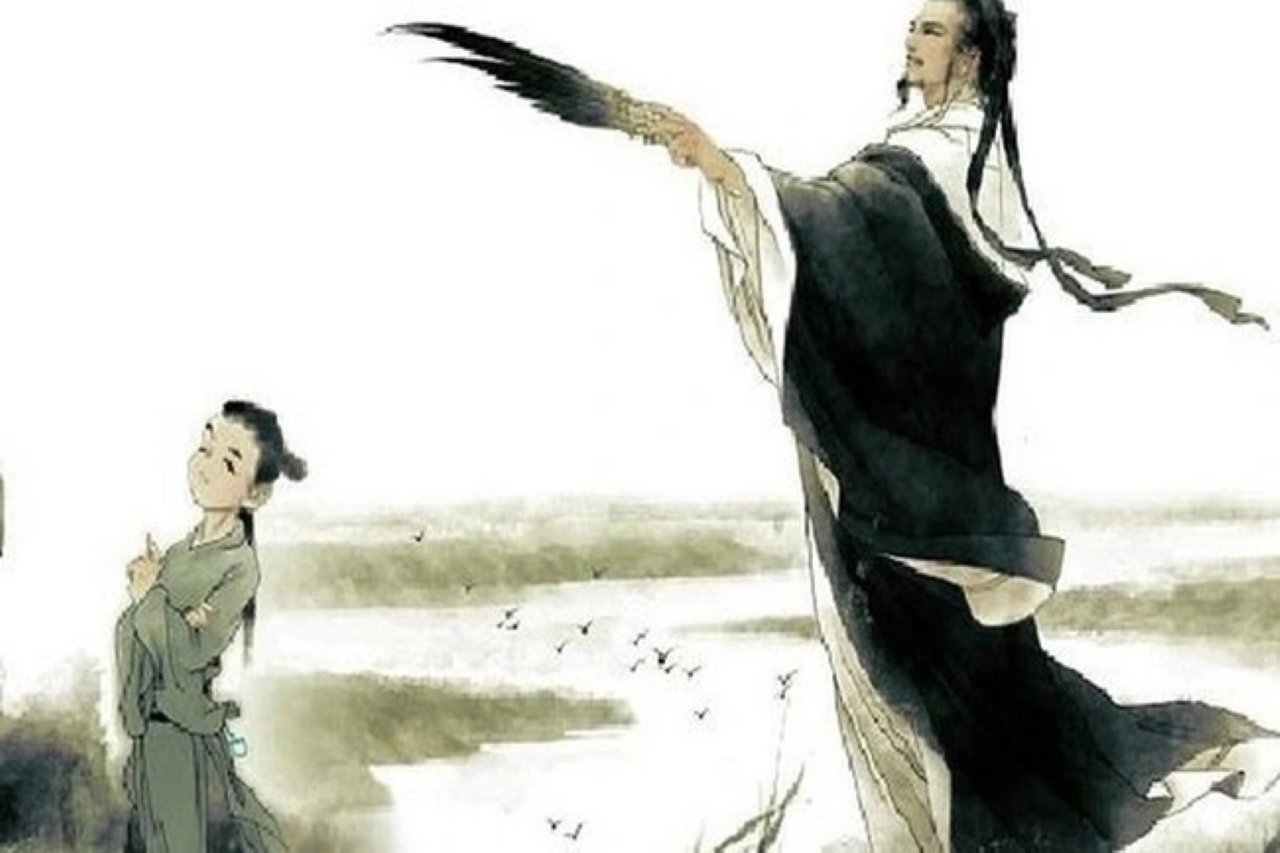1. Zhuge Liang’s Lesson on Ambition and Noble Goals
Zhuge Liang, also known as Kongming, dedicated his life to serving his country and its people, sacrificing personal gains for the greater good. He left a lasting legacy, emphasizing the importance of ambition and noble goals for future generations.
At the age of 54, Zhuge Liang wrote the “Letter to My Son” to his eight-year-old son, Zhuge Zhan. In this letter, he shared the wisdom and experiences that shaped his life. He advised his son and future generations to strive for self-improvement and cultivate a calm and focused mind, saying, “A true gentleman uses tranquility to cultivate oneself and frugality to nurture virtue. Without simplicity, one cannot have a clear mind, and without tranquility, one’s intellect cannot soar.”
Zhuge Liang believed that to achieve true tranquility, one must constantly work on self-improvement and self-reflection. He also emphasized the importance of cultivating talent, virtue, and integrity to attain frugality. Only with a pure heart, free from excessive desires, can one have a clear ambition. By maintaining a calm and focused mind, one can turn their ideals into reality through continuous learning and a strong will.
Zhuge Liang had high expectations for his children, and they did not disappoint. They followed in his footsteps, becoming exemplary individuals who valued integrity and loyalty over personal gain. They dedicated their lives to serving their country, embodying the true meaning of “tranquility” and “noble intellect.”

Zhuge Liang believed that frugality comes from cultivating talent, virtue, and integrity. (Illustration)
2. From Mien: Leaving a Legacy of Integrity
From Mien, a high-ranking official during the Liang Dynasty, led a life of integrity and frugality. He was strict with himself, conducted his duties with fairness and caution, and lived a life free from greed. He shared his wealth with those in need and did not accumulate possessions for himself.
Despite suggestions from associates to accumulate wealth for his children, From Mien replied, “Others leave money and property for their children, but I leave a legacy of integrity. If my children have virtue and talent, they will naturally build their own fortune. If they lack these qualities, any wealth I leave behind will be of no use.”
From Mien often taught his children the importance of moral character. In a letter to his son, he wrote, “Our family has always been known for its integrity, and as a result, we may experience some hardships in our daily lives. We have never considered acquiring wealth, let alone engaging in business. As the ancient saying goes, ‘Leaving a basket of gold for your children is not as valuable as teaching them to be diligent in studying a sutra.’ These words are not to be taken lightly. Although I may not have great abilities, I have the heart and the joy of following the teachings of our ancestors. I am determined to uphold this principle, even after nearly 30 years of holding high office.”
From Mien refused to use his position for personal gain, believing that only by leaving a legacy of integrity could his descendants truly prosper. His children went on to become renowned for their talent and virtue.
3. Teaching Children to “Cultivate Themselves for the People”
Kou Zhun, who lost his father at a young age, grew up in poverty, relying on his mother’s weaving to make ends meet. Every night, she would spin yarn and teach Kou Zhun, instilling in him the importance of education.
Kou Zhun later traveled to the capital to take the imperial examination and passed, becoming a scholar. When the good news reached home, Kou Zhun’s mother was on her deathbed. In her final moments, she gave a self-portrait to a midwife, Mrs. Liu, saying, “Kou Zhun will surely become an official one day. If he ever makes a mistake, give this portrait to him.”
Years later, when Kou Zhun became the prime minister, he invited friends to celebrate his birthday. Mrs. Liu felt it was the right time to give him the portrait. Upon receiving it, Kou Zhun saw a painting titled “A Locked Window with Cold Bamboo.” Accompanying the painting was a poem:
“Alone by the lamp, studying earnestly with bitter diligence,
I hope you will cultivate yourself to serve the people;
Our family’s frugality is due to your mother’s teachings,
In future wealth and honor, do not forget past poverty.”
Deeply moved by his mother’s last wish, Kou Zhun immediately canceled the birthday celebration. From that day forward, he maintained his integrity, loved the people, and upheld fairness, never seeking personal gain. He became a renowned prime minister known for his virtue and talent during the Song Dynasty.





































